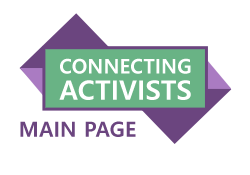Jack Craven, Fordham University sophomore, interviewed labor activist Ed Murphy in fall 2020
 This past week, I had the great pleasure of sitting down with Ed Murphy, executive director of the Workforce Development Institute (WDI) to talk about his career and the work he's done with both social justice campaigns and the labor movement. Now, Murphy’s road to co-founding the WDI was by no means a straight cut road. To truly understand how the WDI came to be, I need to take you back to Murphy's beginnings in 1963 when he was in seminary school.
This past week, I had the great pleasure of sitting down with Ed Murphy, executive director of the Workforce Development Institute (WDI) to talk about his career and the work he's done with both social justice campaigns and the labor movement. Now, Murphy’s road to co-founding the WDI was by no means a straight cut road. To truly understand how the WDI came to be, I need to take you back to Murphy's beginnings in 1963 when he was in seminary school.
Early on in life, Ed Murphy had cultivated and developed a passion for social and economic justice which is what prompted him to join the seminary out of high school. Both at the time and when reflecting upon his life, Murphy calls upon his year of silence in the woods as a transformative period where he became acutely aware of what he wanted to do with his life. Completely cut off from the outside world and left alone only with his thoughts, he realized priesthood was not where he could act on his interest and passion of social and economic justice at the level he wanted to. He then left the seminary, and enlisted in the army. It was here where he would soon become an intelligence officer. Murphy was also chosen to go to Vietnamese language school and spent most of his time in the Central Highlands of Vietnam. During his career with the military, Murphy always held an anti war stance and thought the war was “stupid”. These beliefs can be seen in the work he accomplished post Vietnam.
One of these accomplishments was after the war, where Ed Murphy was one of the first people to create and advocate for a program that aided veterans suffering from post traumatic stress disorder (PTSD). Murphy also took advantage of the G.I Bill and returned to college where he engaged in anti war work and studied politics. Building up an impressive resume even before he finished college, Murphy’s passion for politics and social justice also ended up connecting him with his future wife when they were both arrested in Washington D.C for civil disobedience. It was truly a match made in heaven.
Now if I were to write about all the amazing work Ed Murphy has done throughout his career I could most definitely turn this piece into a full fledged book. So skipping ahead in time a little bit to when the WDI was taking its first steps into becoming reality, Murphy was approached by an old friend Denis Hughes who at the time was the President of the New York State AFL-CIO. Familiar with Murphy’s history and abilities, Hughes asked Murphy if he would come work for him at the AFL-CIO and work on a grant with them. It was this crucial connection that eventually led the AFL-CIO to support the creation of the WDI which Murphy would become the executive director of.
The WDI’s main mission is to grow and keep good jobs in New York State. Combining both the social justice and labor reforms ideals, the WDI facilitates projects that build workforce skills and strengthen employers’ ability to hire, promote, and retain workers. The WDI has grown to have over 13 million dollars to fund projects, subsidy programs, and independent publishing.
Ed Murphy is truly one of the most dedicated and accomplished people I have ever met and is still working to guide future generations on paths that will help them accomplish their own goals and achievements just like him. In a graceful display of a balance between work and personal life, Murphy has never lost sight of both the needs of his family and the people he serves and will continue to serve as a model for all future generations of activists.


